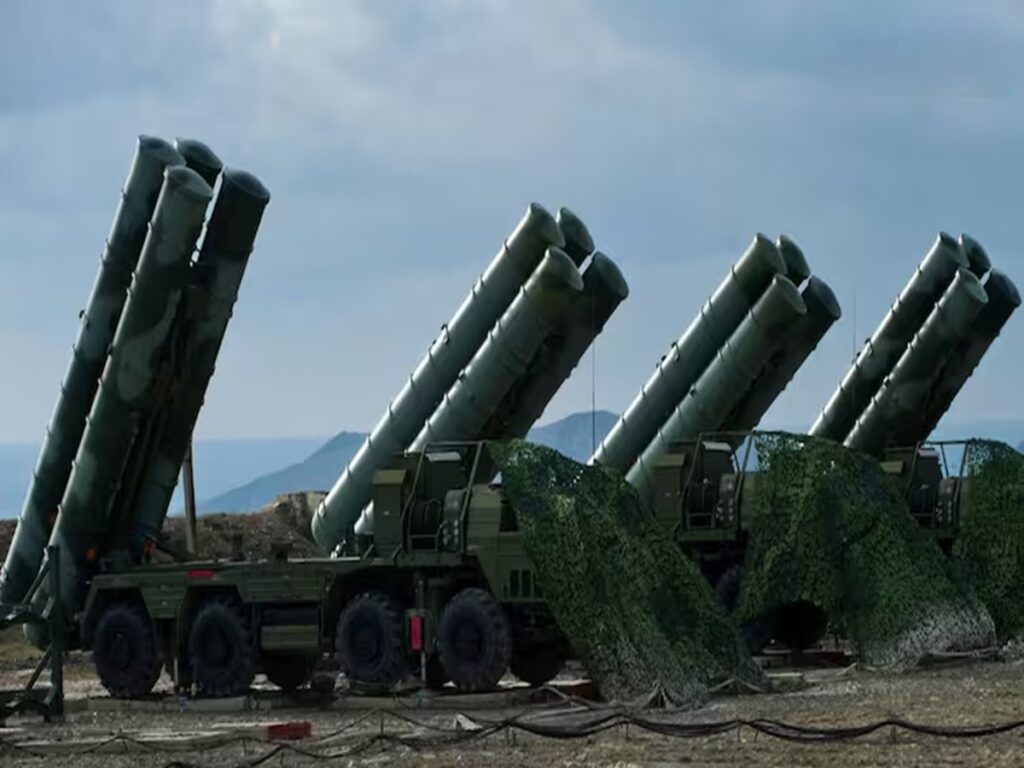S-400 created history in Operation Sindoor, destroyed AWACS aircraft 315 km inside Pakistan
New Delhi: In a decisive show of strength and resolve, India’s Operation Sindoor has inflicted significant damage on Pakistan’s military infrastructure in response to the devastating terror attack in Pahalgam last month that left 26 Indian tourists dead. Indian Air Force (IAF) officials confirmed that the daring airstrikes carried out on May 10, 2025, led to the destruction of critical Pakistani military assets deep inside enemy territory—some as far as 315 km within Pakistan.
Key Strikes and Notable Losses
According to senior Indian defense sources, the Indian Air Force successfully targeted and destroyed a Pakistani SAAB-2000 Early Warning Aircraft (AWACS), a JF-17 fighter jet, a C-130J military transport aircraft, and two F-16 fighter planes. These attacks mark a major operational milestone and reinforce India’s evolving military posture in the face of persistent cross-border terrorism.
The highlight of the operation was the downing of the Pakistani AWACS aircraft, considered a crucial force multiplier in modern warfare. This strike significantly eroded Pakistan’s aerial surveillance capabilities.
S-400 Air Defense System’s Role
A crucial part of this operation was the deployment of India’s cutting-edge S-400 air defense system, stationed in Adampur. Activated 11 times during the course of Operation Sindoor, the S-400 showcased its formidable ability to engage multiple targets simultaneously. The system, capable of engaging up to 80 targets at ranges up to 400 km with its 40-N6 missiles and 250 km with 48-N6 missiles, played a critical role in neutralizing the incoming aerial threats posed by Pakistan’s retaliatory attempts.
Additionally, India’s kamikaze drone attack using the HARPY drone targeted and destroyed China’s LY-80 air defense system in Lahore. In Karachi’s Malir area, India also successfully neutralized the HQ-9 surface-to-air missile system—a Chinese variant of the Russian S-300—signaling the sophistication and precision of the Indian strikes.
Operation Sindoor: A Response to Pakistani Aggression
Operation Sindoor was launched in retaliation to Pakistan’s planned offensive, dubbed Operation Bunyan al-Marsous, which aimed to strike key Indian air bases within 48 hours of the Pahalgam attack. However, Indian defense officials stated that Pakistan’s aggressive campaign was foiled within eight hours as India’s preemptive and retaliatory strikes shattered its offensive capabilities.
Religious Decree Against Terrorism
Adding to the resounding condemnation of the Pahalgam attack, Dr. Umar Ahmed Ilyasi, Chief of the All India Imam Organization, issued a fatwa denouncing terrorism. He declared that no Imam or Qazi in India will offer funeral prayers for any terrorist killed in action. Dr. Ilyasi emphasized that “terrorists are devils and should be treated accordingly after death,” calling on Pakistan-based terrorist organizations like Jaish-e-Mohammed and Lashkar-e-Taiba to renounce violence and remove their names from the scene of conflict.
Furthermore, Dr. Ilyasi’s statement signaled a broader ideological shift as he warned of Pakistan’s exploitation of the people of Balochistan and expressed strong support for India’s stance on Pakistan-occupied Kashmir (PoK).
Global Implications of Operation Sindoor
International experts are already taking note of this unprecedented escalation between two nuclear-armed neighbors. British military strategist Dr. Walter Ladwig observed that Operation Sindoor represents a new chapter in South Asian security dynamics. “This incident signals a seismic shift in India’s military doctrine,” he said, calling India’s response a calibrated show of force rather than a prelude to full-scale war.
Dr. Ladwig drew a historical line from India’s 2016 surgical strikes and 2019 Balakot airstrikes to Operation Sindoor, suggesting that these successive operations mark a clear departure from India’s traditional strategic restraint. “We are entering a new era of military strategy,” he concluded, predicting that Operation Sindoor will become a case study in future military analysis.
A Firm Message to Pakistan
Prime Minister Narendra Modi has consistently vowed to avenge acts of terror against India, and Operation Sindoor stands as a testament to that promise. It is also a stark warning to Pakistan’s Prime Minister Shahbaz Sharif that India will not tolerate terrorism emanating from across the border.
With the successful execution of Operation Sindoor, India has not only avenged the Pahalgam attack but has also delivered a strong message to the world: cross-border terrorism will be met with swift and precise military retaliation.


